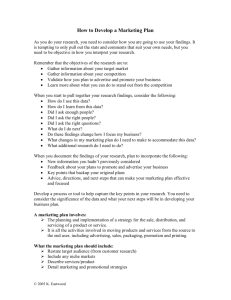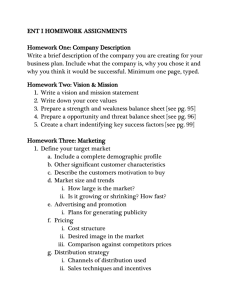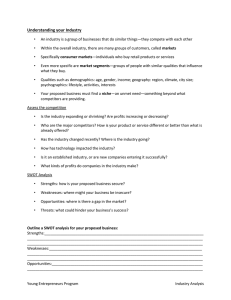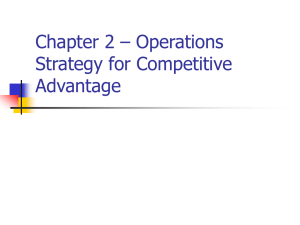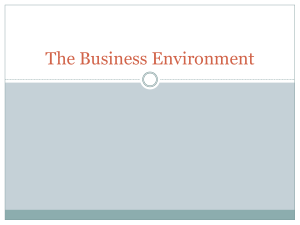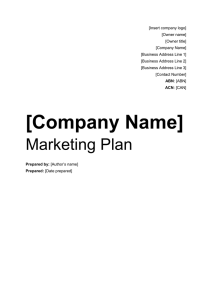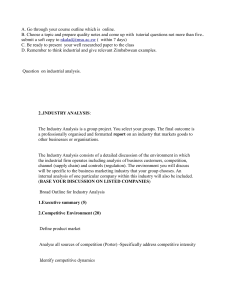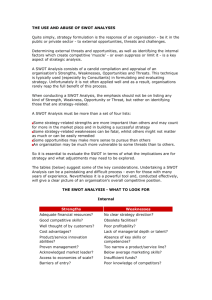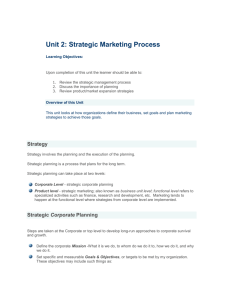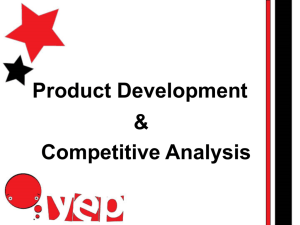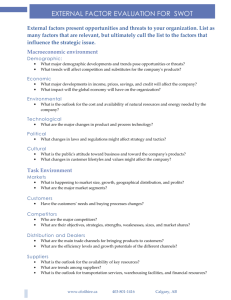Marketing Workshop Handout
advertisement
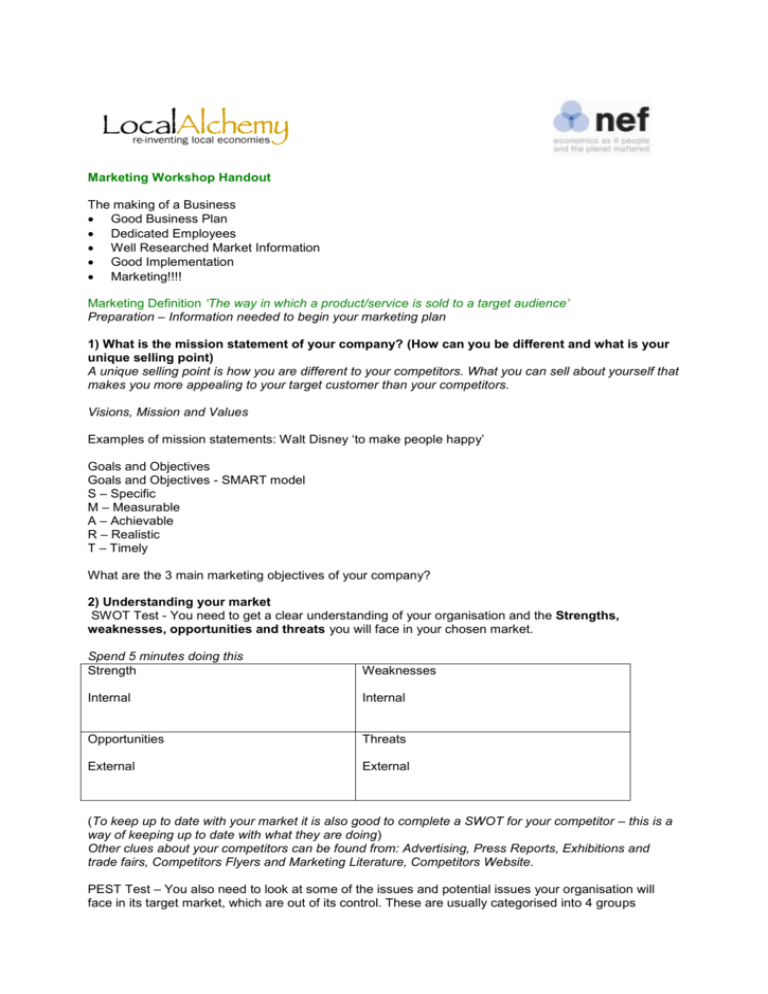
Marketing Workshop Handout The making of a Business Good Business Plan Dedicated Employees Well Researched Market Information Good Implementation Marketing!!!! Marketing Definition ‘The way in which a product/service is sold to a target audience’ Preparation – Information needed to begin your marketing plan 1) What is the mission statement of your company? (How can you be different and what is your unique selling point) A unique selling point is how you are different to your competitors. What you can sell about yourself that makes you more appealing to your target customer than your competitors. Visions, Mission and Values Examples of mission statements: Walt Disney ‘to make people happy’ Goals and Objectives Goals and Objectives - SMART model S – Specific M – Measurable A – Achievable R – Realistic T – Timely What are the 3 main marketing objectives of your company? 2) Understanding your market SWOT Test - You need to get a clear understanding of your organisation and the Strengths, weaknesses, opportunities and threats you will face in your chosen market. Spend 5 minutes doing this Strength Weaknesses Internal Internal Opportunities Threats External External (To keep up to date with your market it is also good to complete a SWOT for your competitor – this is a way of keeping up to date with what they are doing) Other clues about your competitors can be found from: Advertising, Press Reports, Exhibitions and trade fairs, Competitors Flyers and Marketing Literature, Competitors Website. PEST Test – You also need to look at some of the issues and potential issues your organisation will face in its target market, which are out of its control. These are usually categorised into 4 groups Political Economic Social Technological 3) Market Research – Market research is essential to the success of any organisation. Understanding your market will allow you to make the most of opportunities and stay competitive in a fast changing world. There are four stages to the market research process. 1 – Secondary Research 2 – Primary Research 3 – Qualitative Research 4 – Quantitative Research 4) Who is your target audience/end user? – This is a crucial part of your marketing campaign; At this point you will need to consider who exactly your customer is going to be. Age Lifestyle Job/income Where they live Type of home Type of car/transport Where they go Their interests Challenges Where they socialise What they read Don’t forget to create different strategies for different audiences i.e. Stakeholders, Funders, Customers etc The following questions are also important to consider: How big is your target market? – Understand the size of your potential target audience. Are there a handful of customers? – How many potential customers. Where are your customers? – Need to find out where the customers are situated i.e. Local Community, Specific Regions, Countrywide, Abroad, Global. Identify 2 potential niche markets you haven’t yet explored and what you are going to do about it A) B) Do not be afraid to research your target market. You yourself can discover a lot of valuable details as you go about your everyday lives. Look around you, observe your potential customers, collect information, organise your findings and figure out how to reach these people effectively. 5) The Marketing Mix – A useful tool for making marketing decisions that have to be made in order to satisfy the needs and wants of your customers. Used effectively it will help you to produce the response you want from your target market. Product Place Price Promotion What do you want your targets to; CONSIDER BELIEVE THINK FEEL SAY DO BE When they hear/see or experience your company messages? 6) How to reach your customers effectively The Sales process of your product/service, what you want your message to achieve – The AIDAL model A – Attract / Awareness I – Interest D – Desire A – Action L – Loyalty Marketing Mediums we can use to achieve our goals Word of mouth Its not what you know, or who you know, but how well you know them that counts Promotional material - Leaflets/Flyers, Postcards, Business Cards, Handwritten Notes, Personal Touch Editorials and Articles Joint marketing Internet Radio Sponsorship Incentives Promotional Events Timing of your marketing activity is essential Seasonal Competition Techniques 7) Monitoring and Evaluation of the implementation of marketing activity chosen
